MercoPress. South Atlantic News Agency
Tag: Cuba
-
Tuesday, March 15th 2011 - 23:47 UTC
Cuba devalues currency 8% to boost exports and imports substitution process

Cuba devalued its convertible peso by 8% Monday to the level of parity with the US dollar as part of efforts to boost the island's flagging economy, the central bank said. Use of the convertible peso is limited to tourists and other foreigners, for Cubans who receive remittances from abroad and for export activity
-
Saturday, March 12th 2011 - 23:04 UTC
Cuban regime frees leading dissident who promises to keep protesting
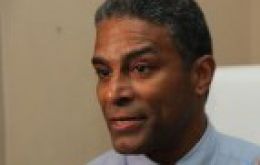
The Cuban government has freed one of the country's leading dissidents, but he says he will keep protesting against the government.
-
Thursday, March 10th 2011 - 22:35 UTC
Petrobras abandons oil exploration in Cuba; all eyes set on Repsol-YPF
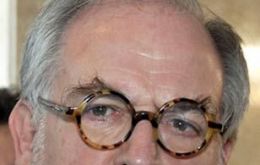
Brazilian oil giant Petrobras has withdrawn from an offshore oil exploration block in Cuba's waters that it leased amid great fanfare in 2008, a Brazilian official said on Thursday, citing poor prospects.
-
Friday, March 4th 2011 - 01:31 UTC
Democracy in Latam, a success story ‘except for Cuba, Venezuela and Nicaragua’
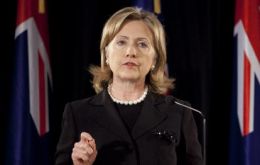
Latin America is enjoying growth and stable democracy with the “notable exceptions” of the leftist governments of Cuba, Nicaragua and Venezuela, Secretary of State Hillary Clinton said Wednesday.
-
Wednesday, March 2nd 2011 - 07:00 UTC
Cuban reforms delayed: who and how do you sacks half a million state workers?
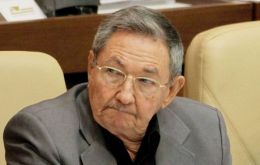
Cuba's plans to lay off half a million state workers by the end of March are behind schedule, President Raul Castro has acknowledged. Castro, quoted by state television, said the timetable for the cuts would be altered to soften their impact.
-
Sunday, February 27th 2011 - 23:23 UTC
Cuba elected as vice-president of the UN Special Committee on Decolonization
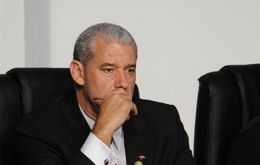
Cuba was elected last week vice president of the United Nations Special Committee on Decolonization, also known as the Committee of the 24, exclusively in charge of promoting a decolonization agenda.
-
Wednesday, February 2nd 2011 - 14:30 UTC
Castro tells bureaucrats to end waste, improvisation and listen to people’s concerns

President Raul Castro called on the Cuban government to eliminate waste and provide more efficient and improved quality services while keeping “feet and ears on the ground” to closely listen to Cubans concerns regarding the economic reforms recently put into practice.
-
Friday, January 28th 2011 - 19:13 UTC
Cuba: Reportedly Still Holding A Hundred Political Prisoners

The Cuban Commission on Human Rights and National Reconciliation says that the island's communist government is still holding a hundred political prisoners, in spite of releasing numerous imprisoned dissidents last year.
-
Monday, January 17th 2011 - 12:16 UTC
Washington makes access to Cuba easier
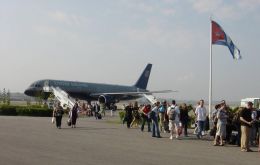
New guidelines announced Friday by Obama administration making travel and remittance to Cuba easier for US citizens.
-
Thursday, January 6th 2011 - 23:14 UTC
Cuba: Massive cruise liner docks in La Havanna to much fanfare

A salsa band, dancing schoolchildren and showgirls in bikini tops and feather headdresses welcomed some 1,500 tourists on a British cruise liner that officials described as among the biggest ships to visit Cuba in years.
